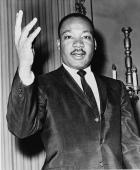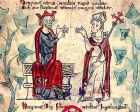Progression & Assessment
Effective planning depends on a strong vision of what it is teachers want their students to know, understand and be able to do at the end of the lesson (term/year/key stage/exam course) that they didn’t know or understand or couldn’t do before. While exam specifications provide some of this vision, many teachers have also looked to the work of historians for models of more powerful historical knowledge and argument. Since responsibility for mapping out progression at Key Stage 3 and developing systems to assess and report it effectively now rests with teachers and schools, this section includes a range of resources illustrating how teachers have developed and implemented such systems. It also includes a number of research articles (on which many of those teachers have also drawn) about common patterns of development in students’ historical thinking. Read more
-

Opportunities, challenges and questions: continual assessment in Year 9
ArticleClick to view -

Pupil-led historical enquiry: what might this actually be?
ArticleClick to view -

Securing contextual knowledge in year 10
ArticleClick to view -

Teaching History Curriculum Supplement 2014
ArticleClick to view -

The role of takeaways in shaping a history curriculum
ArticleClick to view -

Using timelines in assessment
ArticleClick to view -

Using ‘Assessment for Learning' to help students assume responsibility
ArticleClick to view -

What is APP?
ArticleClick to view -

What is bias?
ArticleClick to view -

What’s The Wisdom On... history assessment?
ArticleClick to view

